Graham Reid | | 4 min read
Jack Thompson with George Campbell (bass) and Alan Siddall (drums): 12th Street Rag (1960)
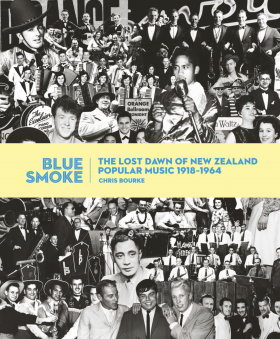
In the introduction to Stranded in
Paradise, his 1987 survey of New Zealand rock'n'roll from 1955,
John Dix addressed the question he had been constantly asked, “What's
happening with the book, Dix?”
Doubtless Chris Bourke – a former Rip
It Up editor, longtime music writer and author of the Crowded
House biography Something So Strong – faced the same
question these past five years.
Yet Dix had the advantage that most of
his protagonists were still alive. Bourke's book goes back into a
fading past, and sometimes many of those whose recollections he drew
on were less than useful.
In the early days of this project I was
one who did some interview transcriptions for Bourke and they were
often depressing: His subjects couldn't remember places or dates –
“Was that before or after the war?” – let alone the names of
musicians they played alongside.
Worse were comments like, “Oh, he was
a real character. Yeah, a real character . . .” and no anecdote or
example to support the contention.
And Bourke tells with amusement of the
generation gap between the subject and a young transcriber who had
Gershwin's Rhapsody in Blue as Rap City in Blue.
Out of such rude and unpromising clay –
and his scores of interviews, research in the archives of
professionals and amateurs, pursuing the narrative in Australia and
listening to hundred of hours of music – Bourke has shaped a book
remarkable in its breadth and historical accuracy, and rich in its
its story-telling.
As a writer he has a light and
sometimes wry touch, he is generous and sympathetic to his subjects,
and lets humour speak for itself while weaving though the facts.
“Hello My Dearie is an
unlikely way to start a revolution,” he writes. “This
light-hearted 1918 song, among others, launched New Zealand's first
radio programme on 17 November 1921; it would bring the world into
people's homes, and a world of music”.
Bourke had a challenge not faced by
writers on more recent music: His subject was mostly live music, not
recorded, and to his credit he captures telling detail to create the
sense of being there when, for example, Anita Osborn in Christchurch
in 1944 -- after being encouraged to sing one night in a dance hall –
was instantly in demand.
“On Fridays, Osborn would get her
hair set and bleached blonde – 'for a singer it had to be blonde' –
and on Saturdays she would be back at the hairdressers to get her
hair combed up again. Wartime clothing shortages meant it was
difficult to get the material needed for a selection of especially
made gowns, so her sisters helped by pooling their coupons.”
Whether it be recreating the atmosphere
in the many sophisticated ballrooms in Auckland in the 30s (and some
of the more sleazy ones later on) or taking the reader to a dance in
a rural hall, Bourke is a reliable guide. The days of jazz and swing
bands, men in bow-ties and woman in elegant gowns, sounds much more
exciting than we have been lead to believe.
But Blue Smoke also includes
other aspect of our history.
This is the author on the departure of
the 28 Maori Battalion in May 1940: “The troop train bypassed
Wellington railway station and went straight onto the wharf, with its
windows shuttered. Families were cordoned off at Aotea Quay, and they
were unable to watch or speak to the soldiers as they moved from the
train onto the Aquitania during the night. Before dawn, women
from Ngati Poneke were taken by bus onto the wharf; some in the crowd
booed, but their turn would come.”
He then quotes Mihi Edwards of Ngati
Poneke: “The Maori Battalion's last contact with its own people was
the sight of the crowd allowed onto the wharf at the last moment, and
the sound of the Ngati Poneke girls singing farewell songs as the
distance widened between the ship and the shore.”
At such times – and they are on
almost every one of these 400 pages – Blue Smoke resonates
as a social history as much as that of music and entertainers.
While the nascent “jazz” and swing
bands provide the atmosphere in the days before rock'n'roll, it is
Maori artists – solo, in various bands from jazz to country, or in
showbands – who are the spine of this book. Maori songs, and many
with Maori references in the title (Dear Old Maoriland, Maori
Eyes, Kia Ngawari and Beneath the Maori Moon in the 20s),
run like a refrain throughout.
Ana Hato and Deane Waretini in the 20s;
The Tahiwis who recorded in te reo in Australia in the 30s; the
Ratana brass bands; Ruru Kariatiana and 19-year old singer Pixie
Williams (in her hockey uniform) recording Blue Smoke in
October 1949, the first locally written, recorded and released New
Zealand song . . .
And beyond to Ray Paparoa (Pukekohe's
Elvis) and Johnny Cooper, the Maori Cowboy, recording our first
rock'n'roll song, a cover of Bill Haley's Rock Around the Clock.
And Bourke is inclusive.
Country music has rarely been hip or
fashionable, but it has always been popular, if beyond the interest
of most broadcasters. Yet Bourke explores this long strand through
characters like Fred Mayfield's Cowboy Band who filled Auckland's
Majestic Theatre in the late 20s, Pete Kloss in the late 30s (“New
Zealand's yodelling cowboy”) and the irrepressible Tex Morton
(songs, hypnotism and target shooting in the same show) who in the
late 30s was selling more records than any other international artist
in Australia and New Zealand, and more than all Australian artists
combined.
Such facts – which can pull you up –
are woven through this extraordinary narrative which comes with a
visual treasury of evocative period photographs, concert posters,
reproductions of labels from the middle of old 78 and 45 discs, and
album covers.
Blue Smoke is a beautifully
presented book which is reference text, bedside-table read and coffee
table page-turner in one.
Chris Bourke has given us back an
important part of our musical and social history, the soundtrack of
which was in danger of being lost or barely audible.
A remarkable achievement and a
marvelous book which sings and swings off every page.


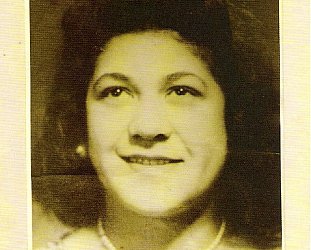

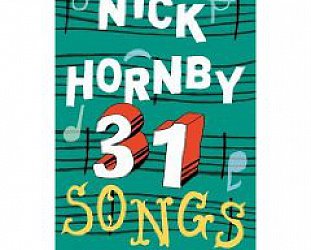
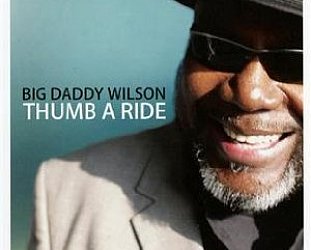
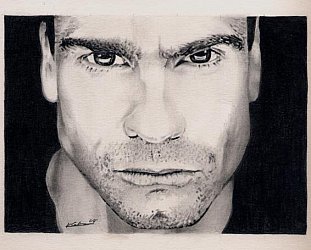
hoanikai - Oct 16, 2010
am listening to the rag...remember it like yesterday....onya chris
SaveRex Franklin - A once in a lifetime experience, a reward for us early entertainers. Thank you Chris. - Jun 23, 2011
My wife Noelene and I began recording Country Music in 1956, because we loved the music, and we loved performing it. In those days, we were fairly treated by the media, we did live radio shows, but for many years we have been largely ignored by mainstream radio.
SaveHowever, the advent of Access stations, means we are getting heard much more often, and it is a huge thrill to see Chris' book on the bookshelves, to show the people of today, and those of tomorrow, what we, and dozens of other fellow entertainers did for the enjoyment, not only for ourselves, but for the legion of fans around New Zealand, and the rest of the world.
As far as I am concerned, nothing touches our hearts quite like this book "Blue Smoke" Thank you Chris Bourke.
Jon Woolf - Aug 23, 2011
What a great read! I came up with so many people in the book. Worked for NZ Broadcasting, performed a bit myself, and worked on "Don't Let It Get You"- 6 weeks in Rotorua at the height of the showband period. Sank more than one jug with Ruru K and Jerry M, lunch with Howard M. Thanks, Chris- an awesome read. If you are into NZ music, you must get this book.
Savepost a comment